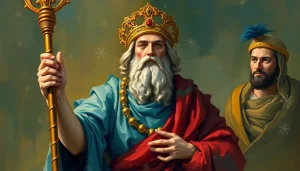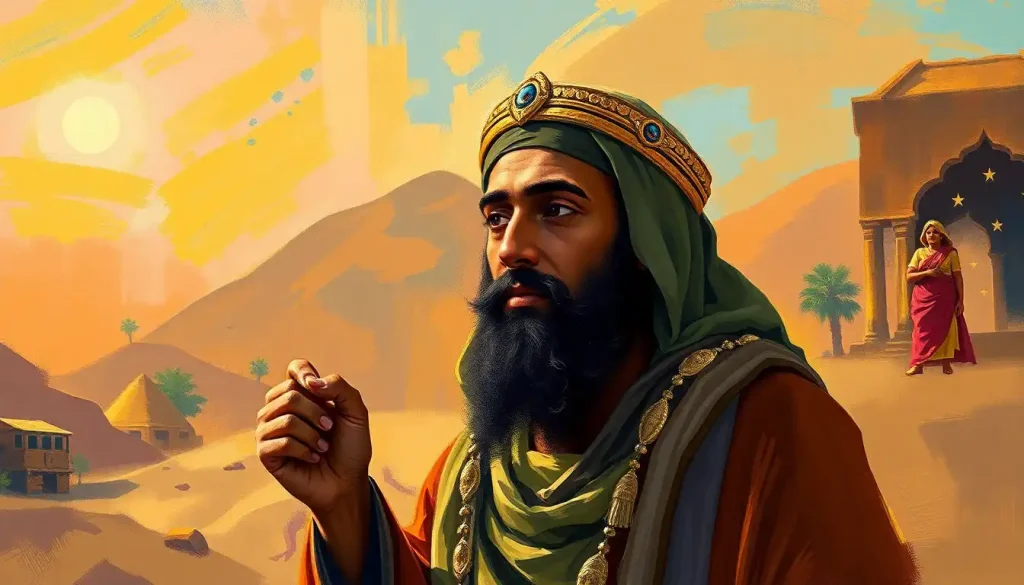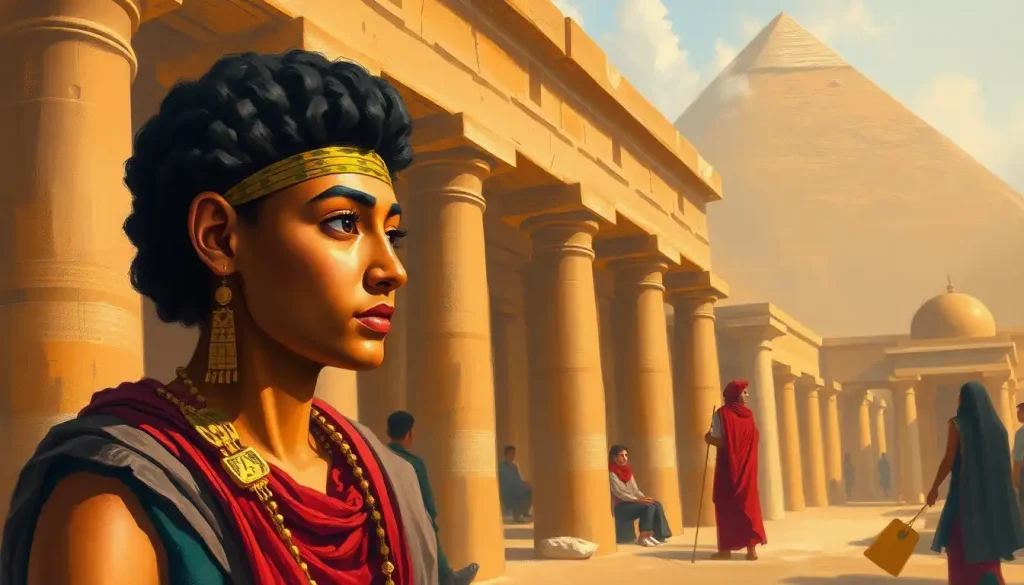Money has captivated humanity for millennia, and nowhere was this obsession more elegantly expressed than in ancient Rome, where an entire pantheon of deities devoted themselves to the pursuit and protection of wealth. The Romans, with their complex mythology and intricate social structures, placed immense importance on prosperity and abundance. Their beliefs and practices surrounding wealth offer a fascinating glimpse into the ancient world’s economic and spiritual landscape.
Roman mythology, a rich tapestry of gods, goddesses, and mythical beings, was heavily influenced by its Greek predecessor. As Rome’s power and influence grew, so did its pantheon, absorbing and adapting deities from conquered territories. This cultural assimilation gave rise to a unique Roman interpretation of wealth and prosperity, embodied in various divine figures.
In the bustling streets of ancient Rome, the pursuit of wealth was not merely a practical concern but a spiritual endeavor. Citizens from all walks of life sought the favor of gods associated with prosperity, hoping to secure their fortunes and improve their social standing. This fervent devotion to wealth deities reflected the Romans’ pragmatic approach to life and their belief in the intertwining of the material and spiritual realms.
Plutus: The Roman God of Wealth
At the heart of Roman wealth worship stood Plutus, the god of wealth himself. Plutus, whose name derives from the Greek word “ploutos” meaning “wealth” or “riches,” was originally a Greek deity before being adopted into the Roman pantheon. This linguistic connection highlights the Greek word for wealth and its profound influence on Roman economic thought.
Plutus’ origins are rooted in Greek mythology, where he was known as Plutos. In Greek lore, Plutos was the son of Demeter, the goddess of agriculture, and Iasion, a mortal. This divine-mortal parentage symbolized the connection between earthly abundance and divine favor. As the Greek god of wealth, Plutos represented not just material riches but also the bounty of the earth and the prosperity that comes from agricultural success.
When adopted into Roman mythology, Plutus retained much of his Greek character but took on distinctly Roman attributes. In the Roman pantheon, Plutus became more closely associated with monetary wealth and the accumulation of riches. His role expanded to encompass all forms of material prosperity, from bountiful harvests to successful business ventures.
Iconography played a crucial role in how Romans perceived and worshipped Plutus. He was often depicted as a young man carrying a cornucopia, the horn of plenty overflowing with coins and fruits. This symbol represented the abundance and prosperity he could bestow upon his devotees. In some representations, Plutus was shown as blind or blindfolded, symbolizing the impartial nature of wealth distribution – a concept that resonated with the Romans’ complex views on social mobility and fortune.
Other Roman Deities Associated with Wealth
While Plutus stood as the primary god of wealth, the Roman pantheon boasted several other deities associated with prosperity and abundance. These gods and goddesses each represented different aspects of wealth and fortune, reflecting the multifaceted nature of Roman economic thought.
Fortuna, the goddess of fortune and luck, held a special place in Roman hearts. Often depicted with a wheel of fortune, Fortuna symbolized the unpredictable nature of wealth and success. Romans believed that Fortuna could bestow or withdraw her favor at will, making her both revered and feared. Her worship was widespread, with temples dedicated to her various aspects found throughout the empire.
Abundantia, the goddess of abundance and prosperity, represented the concept of plentiful resources. She was often portrayed holding a cornucopia, similar to Plutus, emphasizing her role in providing material wealth. Abundantia was particularly associated with the abundance of the harvest and the prosperity that followed a successful agricultural season.
Ops, the goddess of wealth and resources, was another important figure in Roman wealth worship. As the wife of Saturn, the god of agriculture, Ops represented the bounty of the earth and the wealth that came from cultivating the land. Her connection to agriculture underscored the Romans’ understanding of wealth as being rooted in tangible, productive resources.
Comparing these deities with Plutus reveals the nuanced Roman approach to wealth. While Plutus represented wealth in its purest form, Fortuna added the element of chance and unpredictability. Abundantia focused on the concept of plenty, while Ops tied wealth to the fundamental resource of land. Together, these deities formed a comprehensive divine economy that mirrored the complex Roman view of prosperity.
Worship and Rituals Related to the Roman God of Wealth
The worship of Plutus and other wealth deities was an integral part of Roman religious and social life. Temples and shrines dedicated to these gods dotted the landscape of ancient Rome, serving as focal points for both private devotion and public ceremonies.
Plutus, despite his importance, did not have as many grand temples as some other major Roman gods. Instead, his worship was often incorporated into household shrines or smaller public altars. This reflected the personal nature of wealth pursuit and the belief that Plutus’ favor could be courted through individual devotion.
Offerings and sacrifices made to Plutus and other wealth gods were as diverse as the forms of wealth themselves. Wealthy Romans might offer gold coins or precious objects, while those of more modest means might present fruits, grains, or small tokens. The act of giving was believed to attract the god’s favor, potentially multiplying the worshipper’s wealth.
Festivals and celebrations honoring wealth deities were common in the Roman calendar. The Consualia, a festival honoring Consus, a god of stored grain (and thus, agricultural wealth), was celebrated twice a year. During these festivities, Romans would make offerings at underground altars, symbolizing the hidden nature of stored wealth.
Prayer practices for invoking wealth and prosperity were deeply personal and varied. Many Romans kept small statuettes of Plutus or other wealth gods in their homes, offering daily prayers and small gifts. Some would inscribe prayers or petitions on thin sheets of lead or pottery, depositing them at temples or sacred sites in hopes of divine intervention in their financial affairs.
Influence of the Roman God of Wealth on Roman Society
The worship of Plutus and other wealth deities had a profound impact on Roman society, influencing economic practices, social structures, and cultural values. The Roman economy, with its complex system of trade, taxation, and monetary policy, was in many ways a reflection of their divine concepts of wealth.
Social hierarchy in ancient Rome was closely tied to wealth, with the pursuit of riches seen as a means of advancing one’s status. The worship of wealth gods like Plutus provided a spiritual dimension to this pursuit, offering hope to those seeking to improve their lot in life. At the same time, it reinforced existing power structures by suggesting that wealth was a sign of divine favor.
Plutus and other wealth deities featured prominently in Roman literature and art. Poets and playwrights often invoked these gods in their works, using them as metaphors for the human condition or as plot devices in stories about fortune and misfortune. In visual art, depictions of Plutus and his fellow wealth gods adorned everything from grand public buildings to humble household items, serving as constant reminders of the importance of prosperity in Roman life.
Roman philosophy grappled with the moral implications of wealth worship. Stoic philosophers, in particular, cautioned against the excessive pursuit of riches, advocating instead for a life of virtue and moderation. This tension between the desire for wealth and the philosophical ideal of detachment from material concerns created a rich intellectual discourse that continues to resonate today.
Legacy of the Roman God of Wealth in Modern Times
The influence of Plutus and the Roman concept of wealth extended far beyond the fall of the empire. During the Renaissance and Baroque periods, artists rediscovered classical themes, leading to a resurgence of interest in ancient deities. Plutus and other wealth gods became popular subjects in paintings and sculptures, often used as allegories for abundance and prosperity.
Modern interpretations and adaptations of Plutus continue to appear in various forms of media and art. From literature to video games, the concept of a god of wealth remains a powerful and evocative symbol. These contemporary reimaginings often explore themes of greed, fortune, and the moral complexities surrounding wealth.
The Roman fascination with wealth deities has left an indelible mark on contemporary views of prosperity. The idea of “fortune” as a capricious force, the association of abundance with divine favor, and the moral questions surrounding the pursuit of wealth all have roots in ancient Roman beliefs.
Comparing Plutus with other cultural deities of wealth reveals fascinating parallels and differences. For instance, the Aztec god of wealth, Xipe Totec, was associated with both prosperity and renewal, reflecting a different cultural perspective on the nature of abundance. Similarly, the Hindu god of wealth, Kubera, embodies a unique set of values and attributes distinct from his Roman counterpart.
The enduring fascination with wealth deities across cultures speaks to a universal human preoccupation with prosperity and abundance. From the opulent temples of ancient Rome to the financial districts of modern cities, the pursuit of wealth remains a driving force in human society.
As we reflect on the role of wealth in ancient and modern societies, it’s clear that the legacy of Plutus and his fellow Roman deities continues to shape our understanding of prosperity. The complex interplay between spiritual beliefs, economic practices, and social structures that characterized Roman wealth worship offers valuable insights into our own relationship with money and success.
In conclusion, Plutus, as the Roman god of wealth, stands as a testament to the enduring human fascination with prosperity. His worship, along with that of other wealth deities, provides a window into the soul of ancient Roman society – its hopes, fears, and values. As we navigate our own economic landscapes, the echoes of these ancient beliefs remind us of the profound and complex relationship between humanity and wealth that has persisted through the ages.
References:
1. Beard, M., North, J., & Price, S. (1998). Religions of Rome: Volume 1, A History. Cambridge University Press.
2. Dumézil, G. (1996). Archaic Roman Religion. Johns Hopkins University Press.
3. Galinsky, K. (2007). The Cambridge Companion to the Age of Augustus. Cambridge University Press.
4. Grimal, P. (1996). The Dictionary of Classical Mythology. Wiley-Blackwell.
5. Hornblower, S., Spawforth, A., & Eidinow, E. (2012). The Oxford Classical Dictionary. Oxford University Press.
6. Kaster, R. A. (2005). Emotion, Restraint, and Community in Ancient Rome. Oxford University Press.
7. Rüpke, J. (2007). A Companion to Roman Religion. Wiley-Blackwell.
8. Scheid, J. (2003). An Introduction to Roman Religion. Indiana University Press.
9. Turcan, R. (2000). The Gods of Ancient Rome: Religion in Everyday Life from Archaic to Imperial Times. Edinburgh University Press.
10. Warrior, V. M. (2006). Roman Religion. Cambridge University Press.












Would you like to add any comments? (optional)